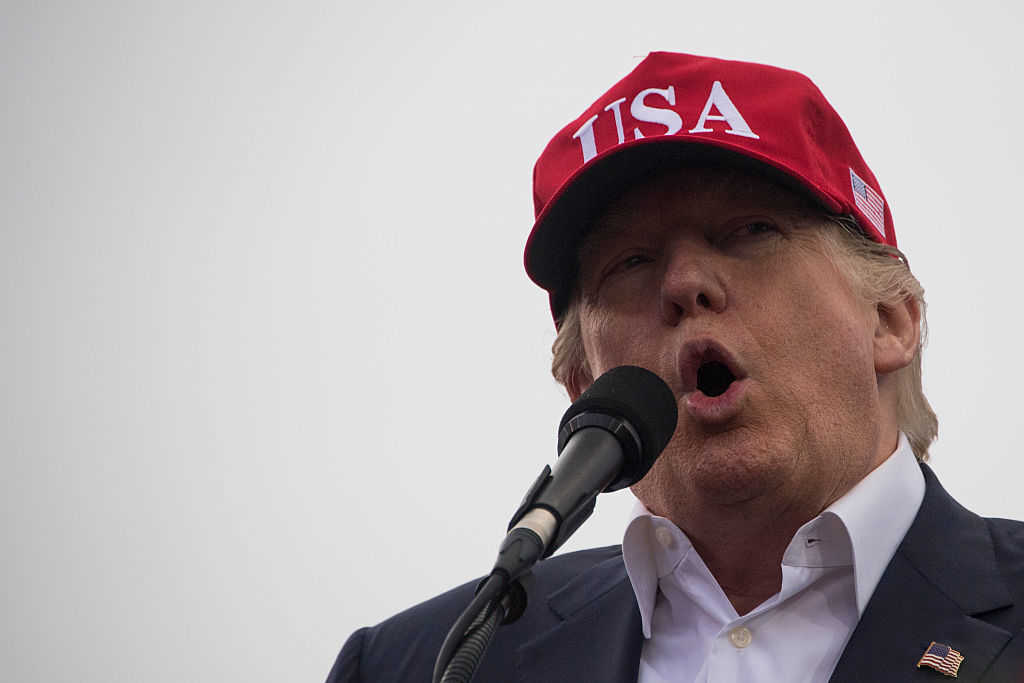As the media continue to focus on the divisiveness surrounding the ever-contentious 2016 presidential election, a prominent theologian says he believes journalists are overwhelmingly missing the mark on what’s most important.
Rather than focusing on the intense political divide, Dr. Darrell Bock, a professor of New Testament studies at Dallas Theological Seminary in Dallas, Texas, said the media should be tuning into the country’s deep need for reconciliation.
“This is part of a long conversation that is needed. This has been a very interesting cycle,” Bock told Faithwire on Tuesday. “The conversation the country needs is, ‘How do we talk to each other in the midst of this divide?’ … as opposed to simply digging into each side.”
He continued, “I think that’s a pretty important angle in this whole thing.”
Bock’s comments came during a week in which the media have intensely focused on furor and debate surrounding the Electoral College and Donald Trump’s victory, as well as on deeper and more complex conundrums, such as the evangelical debate surrounding support for — and critique of — the president-elect.
As NPR reported on Tuesday, Russell Moore, president of the Southern Baptists’ Ethics and Religious Liberty Commission, the political arm of the Southern Baptist Convention, has been under fire for his anti-Trump stance, as well as the warnings he sent throughout the 2016 campaign about evangelicals who openly supported the brash businessman.
While some have essentially called for Moore to step down from his post as a result of his claims, Bock — who, for his own part, publicly encouraged people to support neither Trump nor Democratic contender Hillary Clinton — took a different stance, urging his fellow evangelicals to be open to critique from within.
“The Russell Moore debate … shows whether there’s a willingness, again, to be self-reflective in the midst of what is a highly contentious (situation),” he told Faithwire.
Bock said he believes there’s essentially a “tribalism at work” that is causing “people who are self-critical of their own group to be viewed more as defectors.” But the theologian pushed back against such sentiments, pointing back to the Bible in an effort to encourage evangelicals to be introspective when it comes to critique from within.
“There’s a principle … in the Old Testament, when you think about the prophets, they were definitely pro-Israel, but they recognized that Israel was better being self-critical than simply turning a blind eye,” Bock said, comparing that dynamic to the ways in which he believes people in evangelical circles should be responding to Moore.
It was no secret throughout the 2016 cycle that Moore wasn’t a Trump fan, as he called the businessman an “awful candidate” and criticized some in the religious right for supporting him — proclamations that riled critics, as NPR reported.
But while some didn’t appreciate Moore’s comments about Trump, Bock said he believes the Christian leader was simply trying to “point out the inconsistencies in the way in which Trump was being supported,” specifically when it comes to stances espoused by Christians more generally.
And Moore himself tackled these issues as well on his blog this week and offered an apology, writing:
I remember one situation where I witnessed a handful of Christian political operatives excusing immorality and confusing the definition of the gospel. I was pointed in my criticisms, and felt like I ought to have been. But there were also pastors and friends who told me when they read my comments they thought I was criticizing anyone who voted for Donald Trump. I told them then, and I would tell anyone now: if that’s what you heard me say, that was not at all my intention, and I apologize. There’s a massive difference between someone who enthusiastically excused immorality and someone who felt conflicted, weighed the options based on biblical convictions, and voted their conscience. In a heated campaign season focused on sound bites, this distinction can get lost in the headlines, so it bears repeating.
Speaking more generally about evangelical support for Trump, Bock said it generally fell into three categories: those who simply disliked Clinton, those who agreed with some of what Trump represented — and those who were all in for the businessman.
In the end, Bock said he’s hoping Moore doesn’t get pushed out of his position over his views on Trump.
“If that were to happen that would be a huge defeat for the church, because what it means is that we’re not willing to be self-critical and we’re not willing to reflect on why we give the support that we do,” he said. “That’s never a good place to be.”
Read more about the debate here.
This story has been updated to include three categories surrounding reasons people voted for Trump, not two as previously reported.
—
Other Must-Read Stories:
– Singers’ A Cappella Version of This Classic Christmas Song Will Get You in the Holiday Spirit
– Do You Think the Electoral College Is a Bad Idea? Then You Don’t Understand the System



